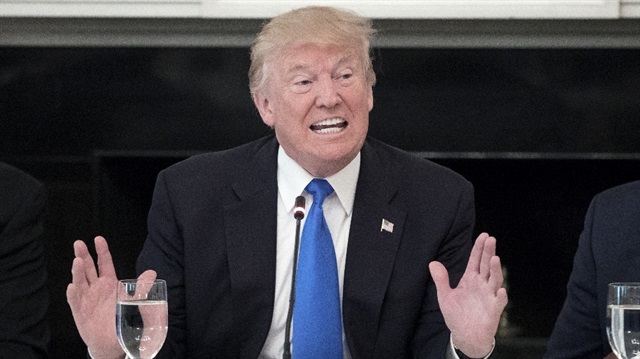

Donald Trump
Trump's decision to end CIA program reflects his desire to smooth over relations with Russia, unnamed officials said
The U.S. under President Donald Trump has ended the CIA's covert program to train and equip Syria's opposition , according to a report Wednesday.
Trump made the decision almost a month ago after meeting CIA Director Mike Pompeo and National Security Adviser H.R. McMaster at the Oval Office, the Washington Post reported, citing unnamed U.S. officials.
The CIA declined to comment on the report when contacted by Anadolu Agency.
Officials told the Post that Trump's decision reflects his desire to smooth relations with Russia that has taken issue with the program whose aim is to combat the Syrian forces of the of Bashar al-Assad's regime.
"The shuttering of the program is also an acknowledgment of Washington’s limited leverage and desire to remove Assad from power," the newspaper added.
Following revelations of a second undisclosed meeting between Trump and Russian President Vladimir Putin at the G20 summit earlier this month, Democrats on the House Foreign Affairs Committee cast skepticism about the earlier announced face-to-face.
"We were wondering what #Trump, #Putin, and the 'interpreter' were talking about..." they wrote on Twitter.
The CIA program will likely be phased out "over a period of months" the officials told the Post, noting that the decision has the support of key U.S. ally Jordan, that has hosted training sites for the Syrian opposition.
Still, eliminating the program is not without its risks.
"One big potential risk of shutting down the CIA program is that the United States may lose its ability to block other countries, such as Turkey and Persian Gulf allies, from funneling more sophisticated weapons -- including man-portable air-defense systems, or MANPADS -- to anti-Assad opposition," according to the newspaper.
Trump's decision to end the program will not alter the Pentagon's efforts to support the Syrian Democratic Forces as it continues an offensive on Daesh's Syrian capital of Raqqa, the Post said.
U.S. support for the SDF has angered Ankara due to the prominent role of the PKK/PYD in the multi-ethnic coalition.
Turkey views the groups as the Syrian extension of the outlawed PKK that is a designated terror group in Turkey, the U.S. and the EU.
#Donald Trump
#Russia
#Syria
#U.S.

